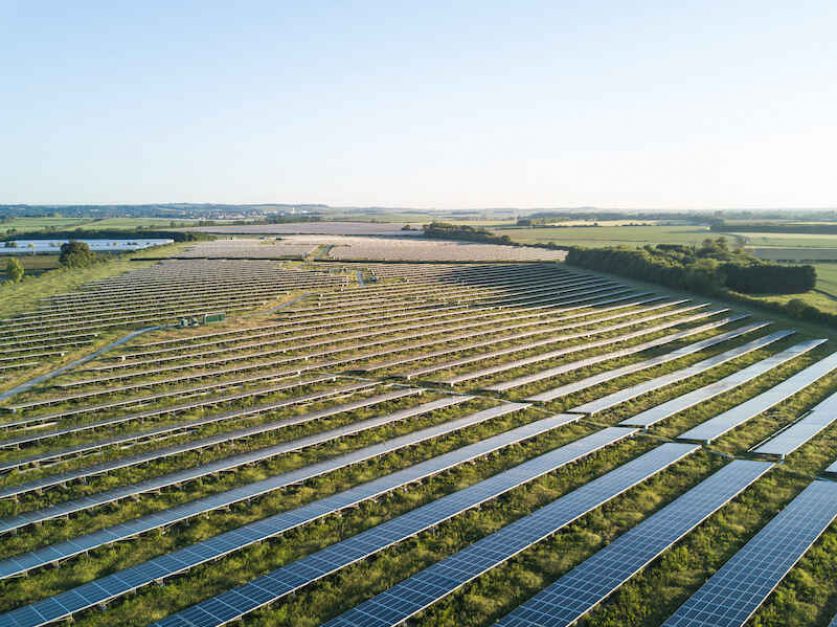
A decision by the government to limit new renewable installations this year will exacerbate the energy crisis next winter, Greenpeace UK has said, as it slates ministers’ “outdated thinking.”
The government is strangling renewable installations by setting arbitrary limits on the amount of capacity that can be subsidised through the contracts for difference (CfD) scheme, the green campaign group said. The limits are being maintained despite the UK’s urgent push to stop importing Russian gas and to shield consumers from the impact of soaring natural gas prices.
On Friday, the Department for Business, Energy and Industrial Strategy (BEIS) set out plans for the next CfD auction, to be held on 5-6 July. In the auctions, generators bid for contracts to produce green power at a guaranteed per-unit rate.
In this round, the government will award contracts to a combined 5GW of new onshore wind and solar installations, with neither allowed to take more than 3.5GW in total.
The government was expected to set a cap of 7GW on new offshore wind capacity. Instead, it will set no cap but limit the incentive pot to £200 million, which industry expects says will amount to a de facto cap of 7GW.
But while the government will only authorise contracts for 12GW of new capacity, the renewables industry estimates that around 17.4GW of projects are “shovel-ready,” having already been granted planning permissions. That includes 8.5GW of offshore wind, alongside 3.9GW of onshore wind and 5GW of solar.
Few of these projects will go ahead without the contracts that let generators lock in prices for their power, Greenpeace set.
The per-unit rate those generators negotiate through the auction will be significantly lower than the cost paid for gas-fired electricity generation. On the current market, onshore and offshore wind and solar power command prices of around £40 per megawatt-hour, compared to the £140 paid for every megawatt-hour of electricity generated by gas power stations.
Most of the renewable capacity authorised through the CfD scheme is expected to come online before the autumn of 2023. Increasing the amount contracted would ease energy prices and mean households feel less strain during the winter of 2023-24, when bills are forecast to remain high.
Doug Parr, a policy director for Greenpeace UK, said: “We have a global climate emergency which requires low carbon power, we have a cost of living crisis which requires cheap power, and we have a war in Ukraine that requires domestic power.
“By an amazing stroke of luck, renewables are low-carbon, cheap, domestic and can be deployed faster than the alternatives. Capacity limits on cheap renewables are outdated thinking.”
Greenpeace’s analysis echoes research from Carbon Brief’s Dr Simon Evans. Evans said in March that 649 onshore wind and solar projects with a total capacity of 10GW already have planning permission. If they went ahead, they’d save Britain more gas than it currently imports from Russia.
Ed Miliband, shadow climate change and net zero secretary, told the Guardian that the government is blocking enough onshore wind and solar projects to power three million homes.
“Once again, families are paying higher energy bills as a direct result of Conservative failure. The government is intentionally blocking access to the quickest, cheapest, cleanest forms of new power,” he said.
“These are shovel-ready projects, with planning permission, that could be generating energy for our country at a quarter of the price of gas by the end of next year.”
A spokesperson for the government defended its record in bringing renewable energy capacity online.
“The Covid pandemic and its aftermath understandably slowed infrastructure deployment across the country. That said, nearly 40% of our electricity now comes from renewable sources, and since 2010 we have delivered a 500% increase in the amount of renewable energy capacity connected to the grid,” the spokesperson said.
“The contracts for difference scheme has been hugely successful in boosting UK energy supply and reducing our dependence on volatile fossil fuels, with competitive auctions reducing the price of offshore wind by around 65% since 2015.”
Source: The Guardian: “Limits on renewables ‘will keep UK energy bills higher this winter’”




